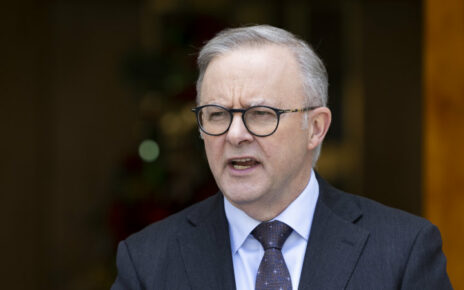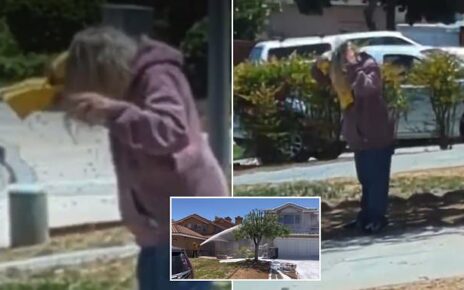WASHINGTON — Former President Donald Trump told top Justice Department officials to “say the election was corrupt” and “leave the rest to me and the Republican congressmen," according to evidence presented by the House Jan. 6 committee Thursday.
After Justice Department officials rebuffed him — there was no evidence of widespread fraud and the election wasn't stolen, they told him repeatedly — Trump threatened to place loyalist Jeffrey Clark atop the agency.
“Donald Trump didn’t just want the Justice Department to investigate,” Chairman Bennie Thompson, D-Miss., said at Thursday's hearing. “He wanted the Justice Department to help legitimize his lies; to baselessly call the election corrupt; to appoint a special counsel to investigate alleged election fraud; to send a letter to six state legislatures urging them to consider altering the election results.”
That draft letter, co-written by Clark, served as the main exhibit in the opening phase of Thursday’s hearing. Though it was never sent, it purported that Justice had found irregularities that could have affected the outcome of the election and asked officials to reconvene legislatures to appoint alternate slates of electors loyal to Trump.
Trump wanted the letter sent to states that were pivotal in his defeat. He summoned then-acting Deputy Attorney General Richard Donoghue and then-acting Attorney General Jeffrey Rosen to an Oval Office meeting with Clark and White House lawyers on Jan. 3 — three days before the official electoral vote count in Congress.
White House counsel Pat Cipollone called the letter a "murder-suicide pact," according to pre-recorded testimony from Trump White House lawyer Eric Herschmann, adding that "it's going to damage everyone who touches it."
On Wednesday night, federal law enforcement agents visited Clark’s home in what was described as a “pre-dawn raid” by Russ Vought, his current employer at the Center for Renewing America.
Trump's interactions with Justice officials, including the tense Jan. 3, 2021, Oval Office meeting, represent one piece of an emerging historical record that committee members say proves he orchestrated an illegal multiprong campaign to invalidate his defeat.
Presidents have long kept the Justice Department at arm's length, allowing the law enforcement agency to operate independently and avoid looking political. But throughout his time in office, Trump ignored those norms and sought to treat the agency as his own legal department.
Donoghue kept contemporaneous notes of conversations with Trump about the false election-fraud claims, including one held on Dec. 27, when Trump pressed officials to reverse the department's declaration of a valid election and "leave the rest" to him and his GOP allies in Congress.
After Donoghue and then-acting Attorney General Jeffrey Rosen refused, Trump summoned them to the White House on Jan. 3, 2021, and threatened to replace Rosen with Jeffrey Clark, an environmental lawyer with little relevant experience to serve as the nation’s top law enforcement officer.
Illinois Rep. Adam Kinzinger, one of two Republicans on the panel, led the questioning of three witnesses Thursday: Rosen, Donoghue and former Assistant Attorney General for the Office of Legal Counsel Steven Engel.
The panel has already aired recorded testimony from former Attorney General Bill Barr, who said he told Trump in December 2020 that the election was not stolen. Barr, who had said in an interview with The Associated Press that Justice had uncovered no evidence of fraud, resigned before the year was out.
On Thursday, lawmakers planned to ask former Justice officials about Trump's push to have the agency declare that the election was flawed and subsequent efforts to reverse Barr's finding. In particular, according to one committee aide, the panel will focus on a Jan. 3 Oval Office meeting at which Trump threatened to replace Rosen with Clark.
Federal agents visited Clark's home Wednesday, according to a U.S. attorney's office spokesman. Vought, a former Trump administration official and Clark's employer at the Center for Renewing America, criticized the "raid" in a statement as being political.
In its four previous public hearings, the committee has presented evidence — through documents and witness testimony — about the physical attack on the Capitol, Trump's efforts to pressure then-Vice President Mike Pence and state officials to aid his effort to stop Joe Biden from taking office, and his team's scheme to replace official electors from seven states with slates of "fake electors."
"There are a lot of folks around the edge, particularly in the Republican Party and elsewhere, that didn’t know the complete story," Kinzinger told NBC News in an interview. "And now when they see the complete story, they’re really awestruck by it, and how close we got and how brazen this attempt was to change the election."
Source: Read Full Article

